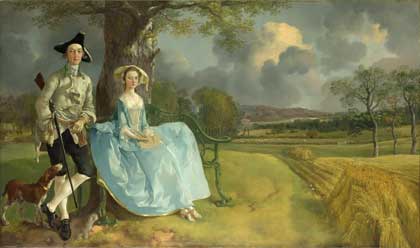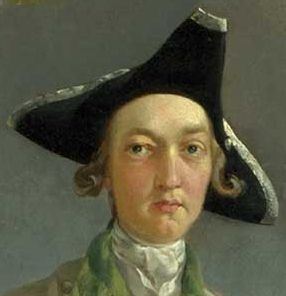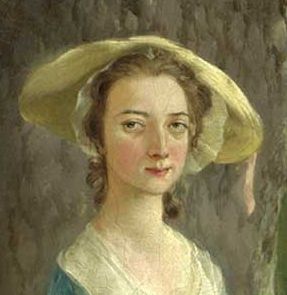
1st February 2003 a nymph writes Dear Dr Veronica,
Dear Daphne,
subway map of the month Caracas, Venezuela. What fine stations: how pleasant it would be to board the train at Los Simbolos, to gaze blankly out of the window at El Silencio, and finally to fetch up on the magical spur at Zoologico. get your skirt on, Alfred In Peter Ackroyd's Albion, we read: In Wiltshire bands of peasants protested against the enclosure of common land by dressing as women and calling themselves 'Lady Skimmington'; it was a way of breaking class barriers as well as sexual boundaries and testifies, perhaps inadvertently, to the English love of mixing or mingling different forms. Two male weavers in female disguise, calling themselves 'General Ludd's Wives', led a crowd in destruction of looms and factories in Stockport; the riots against turnpike tolls and other taxes were led by men in drag and became known as the 'Rebecca riots.'
He goes on to point out that this kind of thing would not have happened in mainland Europe, the penalty for transvestism in France being public burning.
Okay, so here they are: Mr and Mrs Andrews, by Thomas Gainsborough, painted in about 1748, probably shortly after their marriage. It was painted to show the landowner and his property, his wife and the land which comprised the major part of his wealth: Why did Mr and Mrs Andrews commission a portrait of themselves with a recognizable landscape of their own land as background? The point being made is that, among the pleasures their portrait gave to Mr and Mr Andrews, was the pleasure of seeing themselves depicted as landowners and this pleasure was enhanced by the ability of oil paint to render their land in all its substantiality.
- John Berger, Ways of Seeing Yes yes yes, all that, plus the figures being so well-dressed and not at all grubby shows their alienation from the land they're standing on, blah-di-blah. What I want to know is, how did this picture survive its first showing? Look at their faces (and you can, thanks to the National Gallery's javascript zoom):
Okay, not much wrong here that laying off the port for a few months wouldn't clear up, if we ignore the vacant stare. But crikey o'riley:
Finally got around to installing some shelving in the new kitchen/dining room, which means that the hifi can go back from where it was taken away about 6 months ago - since then we've been surviving on cds in the car and a minidisc player. Got out the mid-eighties cd player and the mid-seventies headphones, which were in the first bag of cds to come down from the attic (alpha A-B), and lay on the beanbag playing Natacha Atlas, Baaba Maal (misfiled) and Hildegard of Bingen:
This opening, with the scene shifted to the dove's perspective, I feel sure would have been latched onto by Peter Ackroyd (to set up a straw man) as an example of the fertility and quirkiness of the English imagination, had Hildegard lived in Northumberland rather than Germany. But then, look here: . . . the peculiar fantastic wit that keeps surprising the reader of Leonov or Pasternak, so that a man is described as he looks reflected in the coffee pouring from the spout into a cup, and the soft dark blanket that hangs in one corner of a room in the slums turns out to be the sky.
Which in turn reminds me of this: Oh, God, make small
The old star-eaten blanket of the sky, That I may fold it round me and in comfort lie. I went back into the town and found a turning which led down to another part of the river, and where the buildings finished in a sheer wall of brick was a small door and a window which said Teas. To one side was a gate which led steeply down to the river and a narrow strip of grass with a long green table and two benches. I asked at the window if I might have some tea at the table outside. An old woman said, Yes, in a tone which implied she would like it clearly understood that I did so at my own risk. I sat down and looked through the railings onto the ochre-coloured waters of the river below. Presently a waitress came and asked me what I would like. The question was rhetorical, because before I had time to answer she said I could have a Meat Tea, a Fruit Tea or a Plain Tea. Through the open door I could see several tables of people eating meat pies with a rather sombre enjoyment. I chose a Fruit Tea. The waitress had a round amiable face like a harvest moon; small white hairs sprouted from it at unexpected places. She brought the tea on a stout wooden tray. There was a pot of tea for four, a pint of hot water, a sediment of sandy coloured sugar at the bottom of a bowl, a plate of bread and butter, two ginger nuts, and a plate of stewed apple. She set it all out with a great deal of clatter on the table and smiled broadly as though the whole thing were a great lark. I ate it and read for a bit and watched the numerous boats going up and down the river. The heat and glare slowly drained out of the afternoon. The waitress came back and started to collect up the things. I paid and left and later on took the bus back.
- Keith Vaughan, Journal, August 1943
you're trying to seduce me Chez bhikku at the moment we've begun garden "landscaping" (with ultimate goals of: 1. blue remembered hills
2. upland lawns 3. bare ruin'd choirs (winter only) 4. caves of ice (ditto) 5. adagios of islands (in pond, if present) etc etc) - the first item is a crab-apple tree, which installed fine right out of the box; it's a variant chosen for its prolific fruiting, which bodes well since the best cider I ever made was based on crab-apples. To say nothing of the jelly. typical begin, and cease, and then again begin
Regarding the Stanley Spencer extreme foreground thing, a reader sends in the above Bill Brandt photo (thanks Al!). roll, ludwig, you rock Here are two moments of Beethoven's piano music: firstly, part of the 31st variation of the 32 Variations in C Minor, WoO.80, and then part of the second (and final) movement of the Op.111 Piano Sonata. They're just short half minute clips, listen to them and compare them; it seems to me that they're doing pretty much the same thing, but in a slightly different way. The first was written in 1806 when Beethoven was 36, up to no. 4 as to symphonies and although fully mature still in angry young man mode, with deafness on the horizon but ignorable. The second is from the amazing, uncategorizable Op.111 sonata ('a metaphysical onion in the process of being peeled'), his last piano sonata written when he was 52 and fully deaf - and it seems to me to be an older and wiser version of the first, resigned and happier with its lot. the darlin' man
Only this Mosque of Beauty, this Temple of Nobility, constructed for the Prayer of Saints and the Epiphany of Cherubs, was fit to stand in so Venerable a Sanctuary as this Highway of Archangels, this Theatre of Heaven, the Light Garden of the Godforgiven Angel King whose Rest is in the Garden of Heaven, Zahiruddin Muhammad Babur, the Conqueror.
(inscription on the Tomb of Babur, first Mogul emperor of India, in Kabul) Babur is not like anyone else. His devoted planting of fruit-trees and roses and big plane-trees, at difficult moments and at every moment of his life, is so far as I know unique. In spring he identified sixteen different species of wild tulips on the hills around Kabul. These were his personal researches; he was unwilling to record even a muskrat without a special note if he personally had never seen it. He was a connoisseur of the varieties of melons, and he remembered an individual apple tree he once sat under for as many years as his first lost battle.
from Peter Levi, The Light Garden of the Angel King |
home  Here we are all, by day; by night we're hurled
By dreams, each one, into several worlds. - Robert Herrick We are all conceived in close prison . . . when we are born, we are born but to the liberty of the house; prisoners still, though within larger walls. Now was there ever any man seen to sleep in the cart, between Newgate and Tyburn? Between the prison, and the place of execution, does any man sleep? And we sleep all the way . . .
- John Donne |
|
home ~ retrobhikku | |





